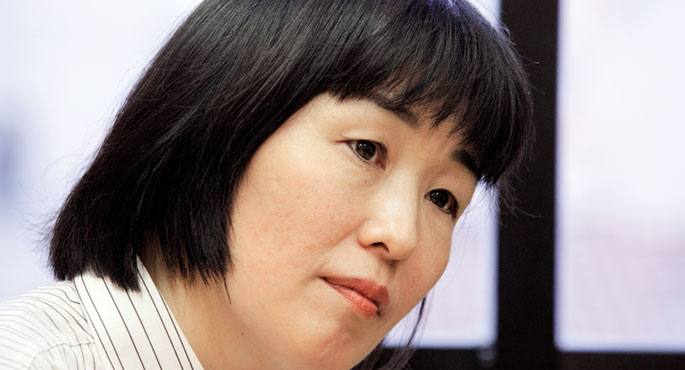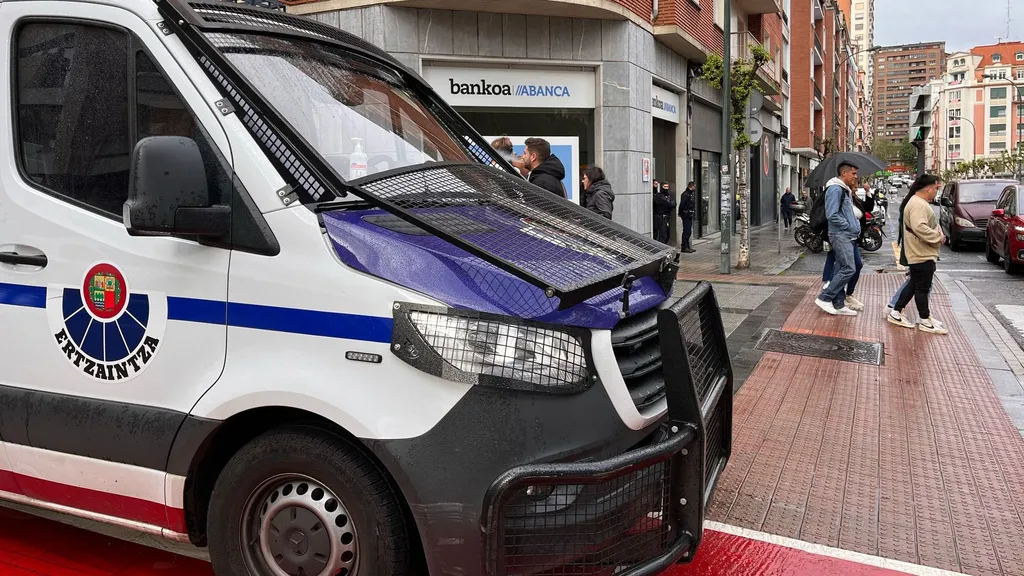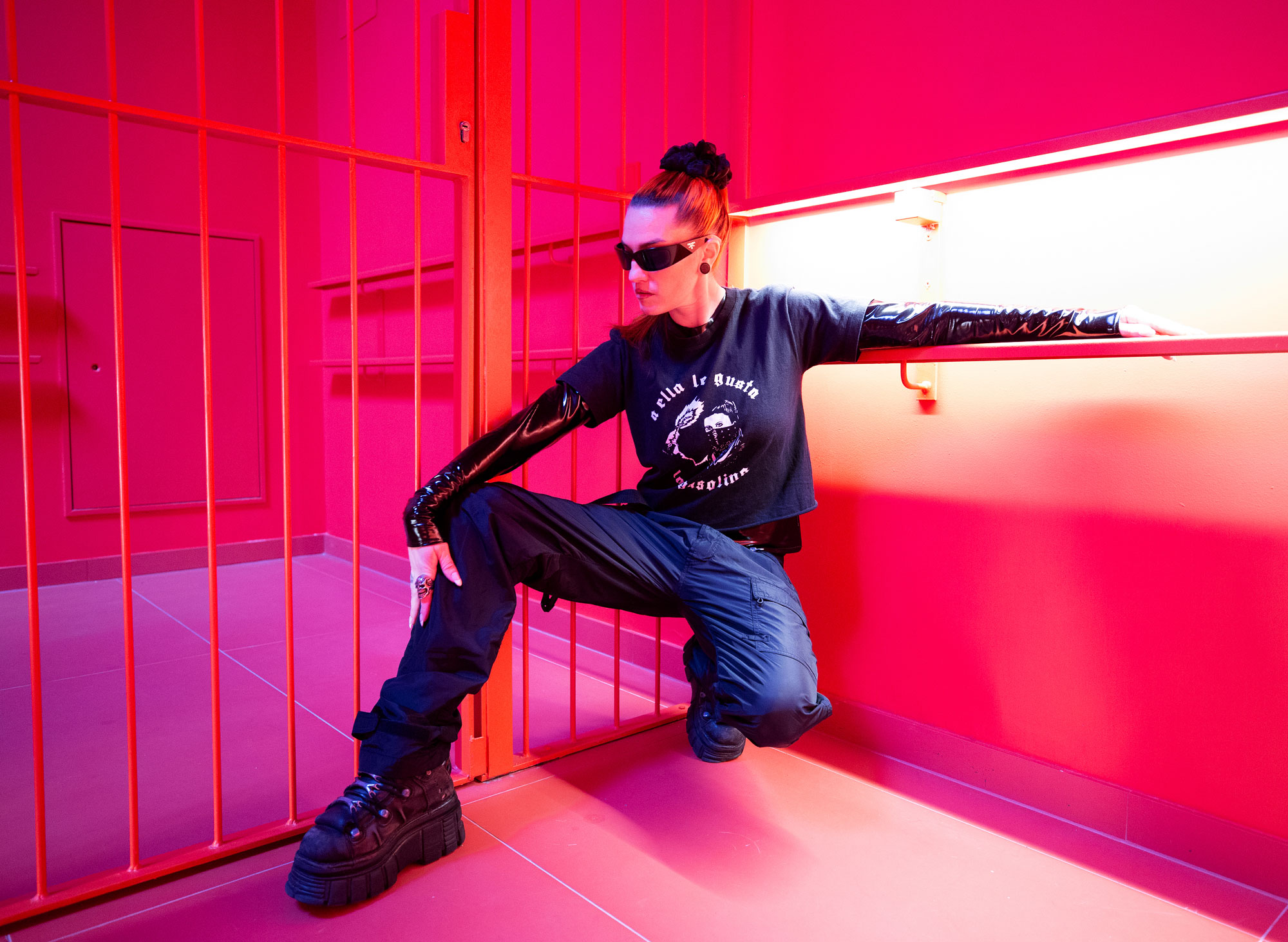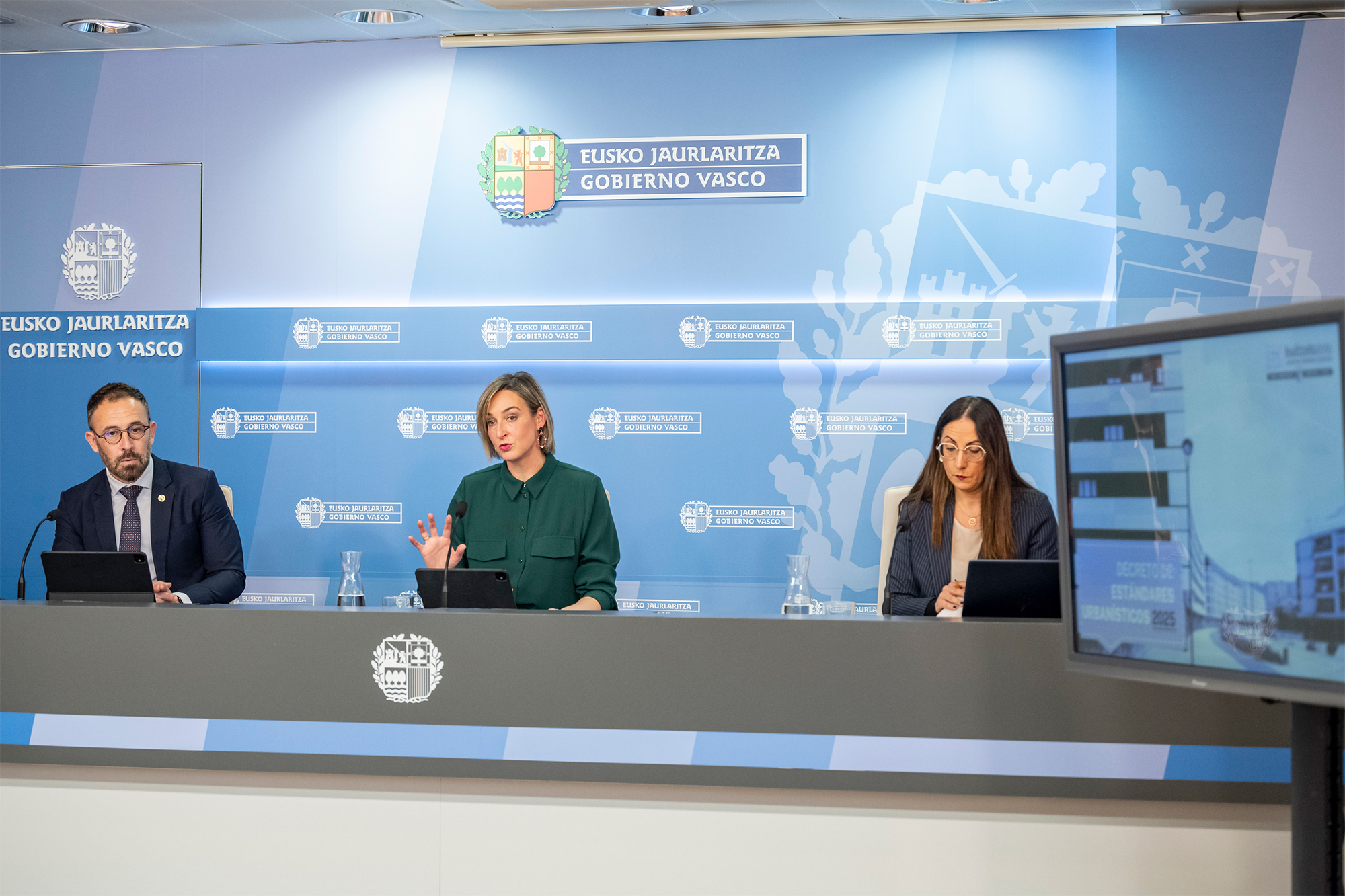"For the first time in Europe I discovered the taste of my country by learning Basque"
- Keiko doesn't like running and running too much, but he's come to the Language School of Pamplona in a quick step. There he is a Japanese teacher and we have stayed with us in his place of work. After greeting us, smiling, he told us we didn't ask anything personal. Without losing his smile, he commented that he is tired of answering the usual questions and is a very simple person in the next ten seconds. You've put us on a difficult starting point, Keiko, but we're sure you have a lot of interesting things to tell.

Why did you choose Hispanic Philology?
Because I liked the test system and few people chose it. I studied Spanish at the university itself.
What about Euskera?
Here. My husband really likes Euskera and the songs in Euskera, and that influenced it. When we decided that our daughters would learn Basque, then, as a mother, I also decided to learn to help them. I've studied in Pamplona, I haven't done intensive courses, barnetegis or anything like that. Normally the Japanese do not have much facilities to learn other languages. Spanish and Basque are perhaps easier for us because they have only five vocals, such as Japanese, but French or English are much more difficult for us.
What relationship do your daughters have with Japanese culture?
Our daughters understand Japanese but have difficulty speaking. When we go to Japan, they sort of figure it out. I speak to them in Japanese, but they almost always answer me in Spanish or in Basque. On the other hand, they have two names: the first one here and the second one in Japan. Their names are very difficult to pronounce for those here, as for the Basques not so much, they distinguish well the sounds “ts” and “tz”.
Was it a great change for you to come here at the beginning?
I lived with a family of Barañain, and as an anecdote, I remember it was a huge blow for me to see the strands of sheep in the street. "Are the sheep here?" I thought. They're also in Japan, but they're not on the street like here. From the beginning I decided to adapt to the customs here and that is why I did not attach much importance to differences. I always thought I had to learn. However, the way of living and thinking is different. One example: a demonstration the other day in Mendillorri, because the patio of a school is very small and the dining room also has little space. As we talked about it, I thought, "What do they have to manifest for? If there is no room in the dining room, it is eaten in class and it is over.” I was a kid always ate in class and there was no problem. When it rains, if there is no room in the patio, stay in the room. And if you can't do that for the rules, change the rules. Why reach the demonstration? Why increase when there's a problem? After using what we have, we will adapt. Practical solutions are needed. So I think. “Keiko, this is a way of thinking about Japan, not here.” Sometimes I understand that tendency to increase things, problems, but many others don't. That's how hard I find it, so I usually don't give my opinion. Maybe to live here it's better to have that ability to move from word to action in five seconds, but I'm still very slow.
The character of the East is different…
The East is not a very precise expression: In Korea, Thailand… there are many demonstrations, for example, and in Japan they are not. To say the East is like saying Europe, are the Germans and the Spaniards alike?
It forgives ignorance. How many times have you been told if you're Chinese?
Now not so much, but at first, fifteen years ago I heard on the street: “Look at a Chinese.” A few years ago we went to eat a small town of Soria and in the restaurant they were holding a communion. While I was having lunch, a group of kids surrounded me and looked at me seriously. And in addition, they called their cousins and cousins, and all their friends, to come and see me. It was the first time they saw someone in the East. In Pamplona this did not happen, because there have been many foreigners here for a long time at the University of Navarra and people think it is normal to see outsiders.
It is difficult for us to find physical differences between the people of the East. Do you have the same thing with white people?
I do not, but in Japan people do not distinguish who is German, American, French or Spanish. At the time of my grandparents, the white was from the United States, because a lot of them came from there.
Is Japan changing a lot?
Between tradition and modern lifestyles, you don't see much controversy, but you see a tendency to look backwards. For example, the success of the novel we just translated is very significant. A cry of love in the middle of the world, Sekai no Chuushin by Kyoichi Katayama, Ai wo Sakebu is a romantic love story, no bodily relationships and a bit classic. It's very good for teenagers, it's nice and easy to read. But achieving so much success across society is terrible. Over three million copies have been sold in Japan, where sales have increased considerably. Too good a success, in my view. The reception of this story, set in the 1980s, shows that people somehow feel the nostalgia of a time when they walked a little slower and without a mobile phone. I see people's fatigue. I don't know what the experts think, but I'm feeling more and more stress, and to some extent, many people think it's a dead end society.
I don't think it's because of the influence of the West, it can happen here too. As the economy grows, people live with optimism looking outward. In times of crisis, on the other hand, it looks inward.
In Japan, since the Second World War, the economy grew and grew until the 1990s. From that point on there was a great deal of confusion. To this must be added the earthquake and tsunami that occurred in March. Pessimism has also spread at the expense of that.
What consequences have these terrible events had on people?
This disaster was yet another blow. A big stick. Many industries are marching out of Japan and people's mental strength is going to fall. Earthquakes have always happened in Japan and, to some extent, we were used to, but this has been terrible. It is now believed that Japan is not a safe place and that it is under the effects of earthquakes around the world. Very harsh situations are taking place. Faced with the risk of radioactivity, for example, in everyday life some are very concerned about their health and use the water from the bottle to cook, as a friend of mine told me. Others, on the other hand, claim that there is still no concrete data and that there is no need to worry before there is scientific evidence.
It was a terrible accident, but still, we saw few tears and shouts in the television images.
We don't normally. I don't know why, but we don't act like that. We express our feelings, but perhaps, from your point of view, to a very small extent. I did see what those people were showing. Now we make it more obvious than before. In past times, internal feelings were less expressed. In a car accident, for example, it is normal for the family to express their pain, but in such a terrible event as that in March, in an accident that everyone suffered, to whom do we show that feeling? If the neighbor is like you, what for? It's OK to show internal discontent, but more important than that is to address what needs to be done.
Is religion really important in Japan today?
Oh my God! Oh, what a question! We should start with the definition of religion itself. There are two major religions in Japan: Buddhism and Symptoism. It's also Catholicism, Protestantism and even Islam, but to a very small extent. Compared to the one here, I would say that people don't attach much importance to religion. It's not as connected to everyday life as it is here. It has less and less weight among young people, but it is very important for the elderly. There, for example, a person can be a Buddhist, but sometimes he goes to the symptomatic temple and gets married in the Christian chapel of the hotel, which is also very fashionable. My God, we too say, when something happens! But what God is that? I don't know.
What do you like the most about life here?
In the west, the strength of people in general. Physical, mental... of all kinds. Optimism. And self-confidence. We do not have it.
And at least?
Too! Having to walk at the same pace costs me a lot. I'm not that strong. Sometimes I say, please stay there until I arrive. People here think things and act, do them almost at the same time, but I'd rather think well before that. I want to have the clear ideas.
Nagoya, Japoniako laugarren hiri handiena da Keiko Suzukiren sorterria. Han Filologia Hispanikoa ikasi zuen unibertsitatean eta hori izan zen Iruñera lehen aldiz, Nafarroako Unibertsitatera, ekarri zuena. Ikasketak amaituta hona itzuli zen, nafar batekin ezkondu eta bere alaba bikiak jaio eta denbora gutxira euskara ikasteari ekin zion, orain dela hamabi bat urte. Egun, japoniera irakaslea da Iruñeko Hizkuntza Eskola Ofizialean eta duela urtebete Maitasunezko oihua, munduaren erdian, Inma Errearekin batera itzulitako eleberria aurkeztu zuen Durangoko Azokan.
Espainiako Estatutik Frantziakora “legez kanpoko” gero eta migratzaile gehiago igarotzen direla argudiatuta, mugetako kontrolak indartzea begi onez ikusi du Pirinio Atlantikoetako prefetak. Migratzaileek delitu txikietan “eragin hautemangarria” dutela... [+]
In the Maszycka cave in Poland, remains of 18,000 years ago were found at the end of the 19th century. But recently, human bones have been studied using new technologies and found clear signs of cannibalism.
This is not the first time that a study has reached this conclusion,... [+]
Porzheim, Germany, February 23, 1945. About eight o’clock in the evening, Allied planes began bombing the city with incendiary bombs. The attack caused a terrible massacre in a short time. But what happened in Pforzheim was overshadowed by the Allied bombing of Dresden a few... [+]
Matematika, zientzia, euskara, gaztelania eta ingelesa konpetentzietan EAEko ikasleek duten maila neurtzen duen ebaluazio diagnostikoaren emaitza festan, 13-14 urteko ikasleek zientzia eta gaztelanian izan duten deskalabrua "zuhurtziaz" gogoetatzeko beharra adierazi... [+]
Otsailaren 3an hasi da gure umeak eta gaztetxoak eskoletan aurre-matrikulatzeko garaia, eta urtero bezala gogoratu nahi genizueke zergatik ez zaigun ideia ona iruditzen erlijioan matrikulatzea. Iaz artikula bukatzen genuen esanez “askori idazki hau ezaguna egingo zaizue,... [+]
Emakumearen familiako kideek jarri dute salaketa Bilboko Kolonbiaren kontsulatuan. Otsailaren 1ean jasan zuen erasoa, Donostiako Manterola kaleko diskoteka baten atarian. Hainbat testigantzen arabera, konorterik gabe egon arren berari kolpeka jarraitu zuen ertzain batek.
Tranbia txiki Arratia Institutuko Guraso Elkartetik pantailen erabileraren inguruko hausnarketa bultzatu nahi dugu ikas komunitatean.
Azkenaldian kezka handia dago ume eta nerabeengan pantailek duten eragina dela eta. Ardura hori etxeko erabileratik eskola eta institutuetako... [+]
Petronorrek adierazi du asmoa duela hidrogenoa ekoizteko lantegia abiatzeko Bilboko Portuan eta erregai mota hori Tubacex, Tubos edota Vidrala enpresetara heltzeko, beharrezkoa izango dela hidroduktoa eraikitzea.
Etxebizitza berrien promozioak ez atzeratzea da Eusko Jaurlaritzako Gobernu Kontseiluak onartu duen dekretuaren helburu nagusietako bat. Zentzu horretan, udalei "autonomia" gehiago emango diela ziurtatu du Denis Itxaso sailburuak.
Bai, bai, holaxe. Ez naiz harago joatera menturatzen. Pleonasmo bat dela? Tautologia bat agian? Baliteke, baina egia-oste deitzen dioten garai honetan, oinarri-oinarrizko egitateak beharrezkoak dira. Begira, bestela, “Ez da ez!” lelo indartsuari. Bagenekien hori... [+]
I had a friend who worked at Porcelana Irabia until they closed, and every time we went to a restaurant or a bar he looked at the mug and the ass of the dish to find out where the piece was made. I do the same thing when I go to the fairs of old things: I look where it is made,... [+]























